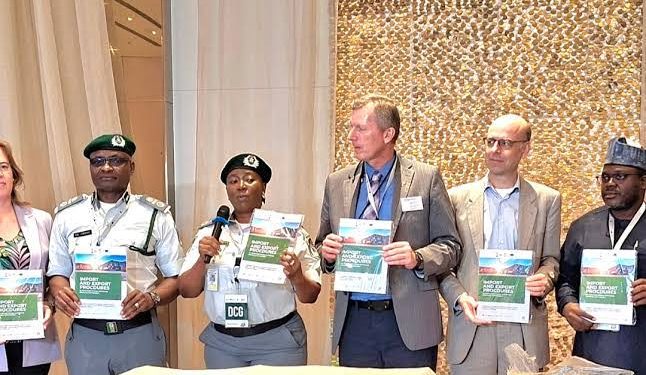The Nigeria Customs Service (NCS) has unveiled a comprehensive handbook aimed at helping importers and businesses navigate the challenges associated with bringing renewable energy technologies into the country. This initiative is designed to simplify trade processes, clarify tariff classifications, and ensure compliance with both local and international standards.
The handbook, which outlines customs regulations, documentation requirements, and step-by-step procedures for importing renewable energy equipment, was officially introduced during a two-day Stakeholders Consultative Forum themed “Trade Facilitation for Renewable Energy and Energy Efficiency Technologies.”
According to the Comptroller General of Customs, the initiative aligns with the national Energy Transition Plan and the government’s broader agenda to attract sustainable investments and promote responsible industrial practices. Represented by Deputy Comptroller-General Caroline Niagwan, he acknowledged that businesses and policymakers often face difficulties navigating import procedures for clean energy equipment. The handbook, he said, is a strategic tool to eliminate such barriers.
The forum also marked the first anniversary of the Advance Ruling Programme, launched on May 1, 2024. The programme allows for binding, pre-arrival decisions on tariff classification and valuation, helping reduce delays, disputes, and uncertainty during cargo clearance. Customs authorities highlighted this system as a significant step in streamlining trade and fostering transparency.
Further reinforcing its commitment, the NCS pledged support for the World Customs Organization’s (WCO) Green Customs Initiative, which aims to enable the trade of environmentally sustainable goods while enforcing Multilateral Environmental Agreements. The service emphasized the importance of customs operations in driving Nigeria’s shift towards cleaner energy and meeting climate obligations under the Paris Agreement, particularly the goal of net-zero emissions by 2060.
The event drew participation from key players in the renewable energy sector, including development partners such as GiZ, the European Union, the German Embassy, and the Kingdom of the Netherlands, who all expressed strong support for Nigeria’s transition away from fossil fuels.
With the new handbook and ongoing trade reforms, the Nigeria Customs Service hopes to create a smoother pathway for the importation of renewable energy technologies, reinforcing the country’s commitment to a greener, more sustainable future.










